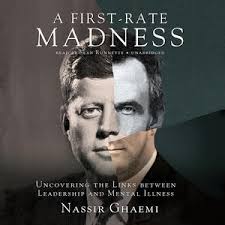I have
just returned from a three week trip to India, a country famous for its
diversity of religions. One fact that
did surprise me was that although Buddism started in India, and Ashoka, India’s
first unifying emperor, heavily promoted the religion, it is now practised by only
1% of the population. We visited Sarnath,
about 9km from Varanasi, where Budda preached his first sermon. The site was filled with Sri Lankan, Thai,
Japanese and Korean Buddhist pilgrims but the saris were non-existant.
In contrast to India, Buddhism or should I say Buddhist
principles, are increasingly gaining popularity particularly in California See for example this New Yorker
article about Andy Puddicome, an Englishman and a former Buddhist monk, who
via an App, HeadSpace, teaches short form meditation based on Buddhist
techniques. The Headspace App launched
in January 2012 has been downloaded 3 million times. Headspace does have critics. One of my favourite quotes from the
article: “It would be as if somebody went to the Catholic Church and said, ‘I
don’t buy all this stuff about Jesus and God, but I really dig this Communion
ritual. Would you just teach me how to do that bit? Oh, and I want to start a
company marketing wafers.’ ”
One of the big supporters of Andy Puddicome has been The Huffington Post. Imagine my surprise when The Huffington Post recently
published an article by Ron Purser and Edward Ng questioning the practice of
mindfulness: Cutting
Through the Corporate Mindfulness Hype.
The article questions the scientific validity of Emotional Intelligence
icons such as Daniel Goleman’s book and Google’s “Search
Inside Yourself“ flagship corporate mindfulness training program. Admittedly the article has a Marcusian
flavour but the questions asked about scientific validity and reliability need
to be answered. (It was a Purser tweet that supplied the photo.)
I think
it is the Greeks who had the answer. Inscribed
on the walls of the Great Temple at Delphi were the two great commands of Greek
life: "Know thyself" and
"Everything in moderation." These two commands are the emotionally
intelligence way to developing mindfulness. Rather that trying to control your transient emotions via
mediation you would much better off understanding your core emotional drives. Your core emotions are driven by your
temperament – what you are genetically born with. Based on a study of 11,000 identical twins
nature is around twice as important as nurture.
I have found the Humm-Wadsworth
model of seven core emotions the most practical tool for people to use and once
understood (takes a day) dramatically lifts their emotional intelligence. If you want to learn about the Humm download
a free white paper on using Emotional Intelligence in either selling or
management . http://www.emotionalintelligencecourse.com/eq-free-white-papers/

